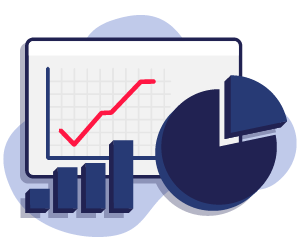GDPR Compliant
With the daunting GDPR compliance laws that arrived in 2018, customer data is at the forefront of today’s digital era. What most businesses don’t know is that to be GDPR compliant, you must certify that all your website plugins are thoroughly updated as and when they need to be.
If you experience a data breach, you must inform the ICO. At this point, they will carry out a thorough investigation into the business. Outdated plugins don’t leak data, but they’re an easy way in for potential hackers to steal data from your website. Unfortunately, data ignorance is not an excuse for a data breach, and so, if you’re found to not be updating your plugins, you could be faced with a substantial data breach fine.
Website Speed
When plugins are updated, usually it’s because they’ve become more efficient, or they’ve developed an increase in security. When plugins are outdated they tend to break, and when they do, they progressively slow down your website. Website speed is a huge factor when it comes to Google rankings and as we know, high Google rankings reap success for a website. Whilst speed affects Google rankings, it also affects the customer experience.
Amazon once reported that from just a 1 second slower website, they projected a loss of $1.6 billion a year from the affected customer experience.
The impact of dropping down Google’s ranking can be fatal for some companies. But it can be quite easily avoided with regular plugin maintenance on your website. Keeping your website fast and efficient is what Google is always looking for and as a result, keeping you above your competition.
Hacker Vulnerability
In the online world, hackers are actively looking for vulnerabilities on your website. One of the easiest ways to infiltrate is through outdated plugins. The CMS giants like WordPress and Magento have very complex plugins for their site, but like anything, bugs can quite easily find their way into the code to which hackers will eventually exploit.
Many people think of their website being hacked as an “it won’t happen to me” situation. But when it does, it’s too late and an untold amount of damage can be created which could incur thousands in costs to rectify the issues. To put it into perspective, 30,000 WordPress websites are hacked every day through various website flaws, one of which is through plugins.
Functionality and Compatibility
In the ever-growing market of plugins with thousands to choose from, they are forever changing and evolving to be the best. Updated plugins bring new features and functionality to enhance your website. Whether it’s the usability or simply the design of a plugin, it’s always in your best interest to update the plugin for the best experience.
We all have our favourite plugins that we use on our website, many of which coincide alongside one another. When one plugin is updated, it may evolve in such a way that plugins it once worked with, no longer does. This would result in errors and potential breakages on your website – bringing us back to the point of website speed and hacking vulnerability.
Recap
So, to recap – If you don’t regularly monitor and update your plugins you are…
- In danger of not being GDPR compliant and could face huge fines from the ICO if you were found to be breaching GDPR laws.
- Vulnerable to hackers infiltrating your website which could cost thousands to rectify.
- At risk of your website slowing down and becoming less efficient and as a result, dropping down Google rankings below competitors.
- Likely to miss out on improved functionality and compatibility between other website plugins which collectively improve website performance.
We know it can be quite daunting to regularly update your website, which is why we offer our Website Maintenance package. We’ll handle the technical side so you don’t have to!


